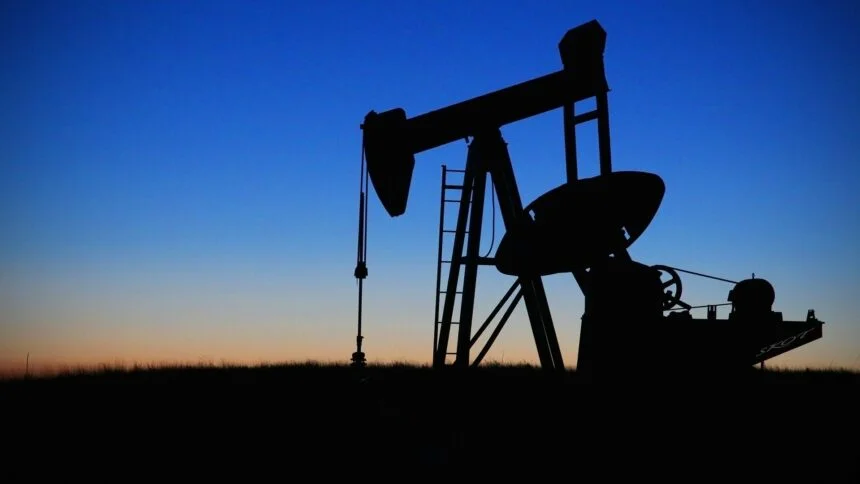Pakistan may be perilously close to experiencing another fuel crisis. It is past time for the decision-makers to take bold steps that can permanently eradicate such risks.
The official group for the downstream petroleum sector, the Oil Companies Advisory Council (OCAC), recently issued a warning that a fuel scarcity may soon arise in some areas of the nation due to some oil companies’ higher-than-expected sales last month while imports were restricted.
The growth in demand from the agricultural industry and the acceleration of the flood victims’ rehabilitation efforts are to blame for the increase in sales.
The Oil and Gas Regulatory Authority (Ogra) quickly shot down the assertions made by the oil industry, claiming that there are enough supplies of gasoline and diesel on hand and that additional cargo additional cargoes will be arriving soon. Even though the fact that the clarification should relieve the residents, there are still three factors that make a gasoline crisis a possibility.
First off, neither the regulator nor the industry gave any indication as to whether October saw a spike in demand. The robust sales trend from October has so far continued into November, which might put a strain on fuel supplies.
Second, it is still unknown whether the fuel cargoes that OMCs (other than PSO) have scheduled will arrive on time, particularly in light of the continued tightness in the world diesel market.
Third, there is a chance that the domestic output of gasoline and diesel will decrease. Recent warnings from at least two oil refiners that delayed furnace oil uplift would force them to cease operations.
Included in this are the top gasoline manufacturer and the only refinery in the north that has acknowledged operating at 70% of its capacity. The domestic production of gasoline and diesel could be badly impacted by this.
Remember that the oil refining business has been suffering for years from the danger of low utilisation and closures. Furnace oil is a crucial refined product that is used to produce power, but demand for it from oil refiners is weak and unstable.
According to Ogra, Pakistan may have adequate supplies of gasoline and diesel, but that doesn’t take away the possibility that future fuel shortages could affect some regions of the nation. Ogra must move proactively to avert a potential catastrophe by enlisting the OMCs and ensuring that they import fuel to cover any shortfall.
Pakistan may avert a fuel crisis by importing gasoline and diesel in good time. There is no doubt, however, that a rise in imports, especially for diesel, will probably harm the nation’s trade balance.
Diesel is in low supply on the world market, which has increased the cost of the good. The maintenance of the global supply system depends heavily on diesel, a vital part of the global economy.
It is utilised in trains and vehicles to help transport everything from unfinished goods to finished goods from one location to another.
The worldwide economic recovery has increased demand for diesel, but the conflict between Russia and Ukraine and refinery closures have interrupted supplies.
Three major storage hubs—the US, Europe, and Singapore—had gasoline stocks that were 24% lower than the 10-year average. As a result, diesel margins in Asia are trading at a level that is almost 190% higher than it was a year ago.
In the event of a shortage, Pakistan might be forced to import significant amounts of this pricey fuel; otherwise, business operations and the whole economy risk ceasing.
Importing fuel has pros and cons. While meeting the nation’s energy needs, they have also increased the trade and current account imbalances to risky levels.
Around 60–70% of the demand for diesel and 30% for gasoline has been satisfied by the nearby oil refineries. However, due to a variety of problems, such as a lack of financial choices and the aforementioned furnace oil issue, 40% of the country’s oil refining capacity is typically not utilised.
To ensure that the refining facilities use all of their installed capacity, the government needs to quickly implement policy measures and engage the oil refining industry. In light of the astronomical fuel prices on the global markets, the sooner this occurs, the better. Pakistan’s production of gasoline and diesel should increase significantly as a result.
There are two clear advantages to operating oil refinery facilities at full capacity. First off, by doing this, the country will need to import less gasoline and less money, which will assist close the trade and current account deficits.
Second, Pakistan will always have enough supplies of gasoline and diesel at home, considerably reducing the chance of a fuel crisis. In this manner, the potential for a fuel crisis might be permanently eliminated.
The author focuses on topics in business and economics, with a concentration on the energy industry.












